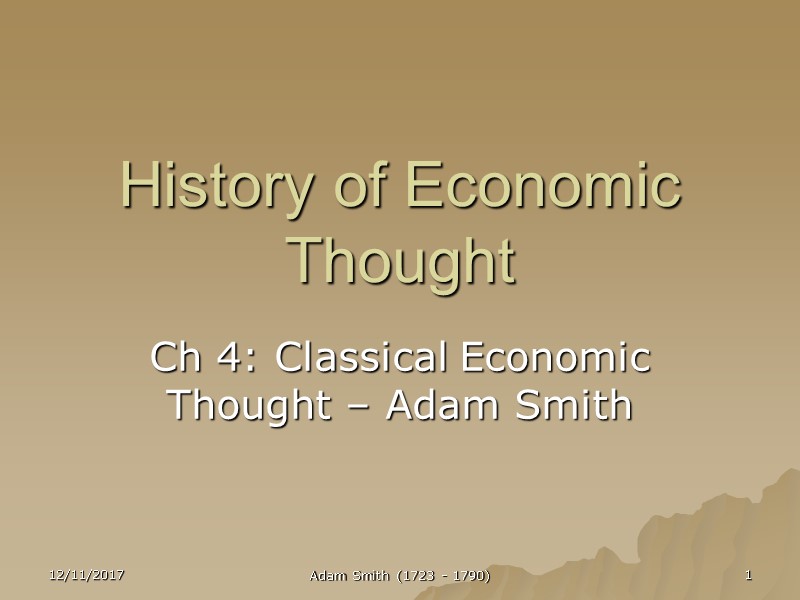 History of Economic Thought Ch 4: Classical Economic Thought – Adam Smith 12/11/2017 1 Adam Smith (1723 - 1790)
History of Economic Thought Ch 4: Classical Economic Thought – Adam Smith 12/11/2017 1 Adam Smith (1723 - 1790)
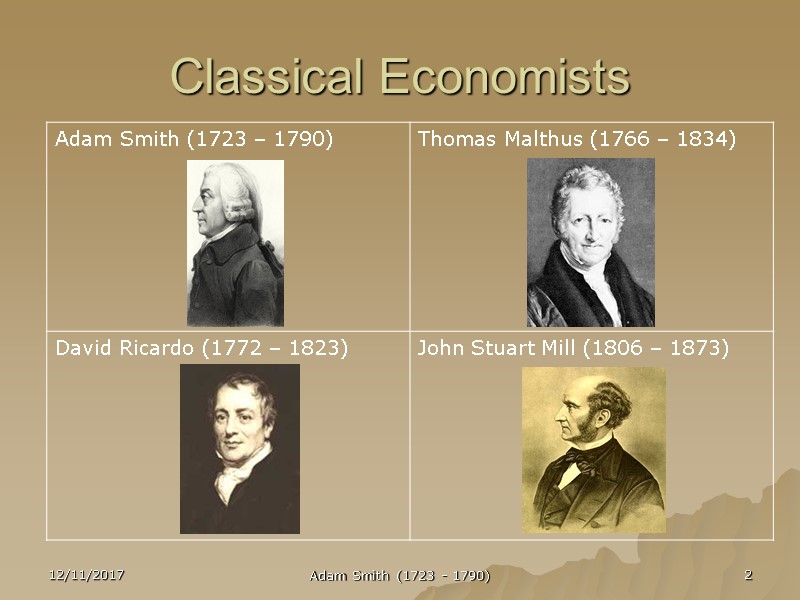 Classical Economists 12/11/2017 2 Adam Smith (1723 - 1790)
Classical Economists 12/11/2017 2 Adam Smith (1723 - 1790)
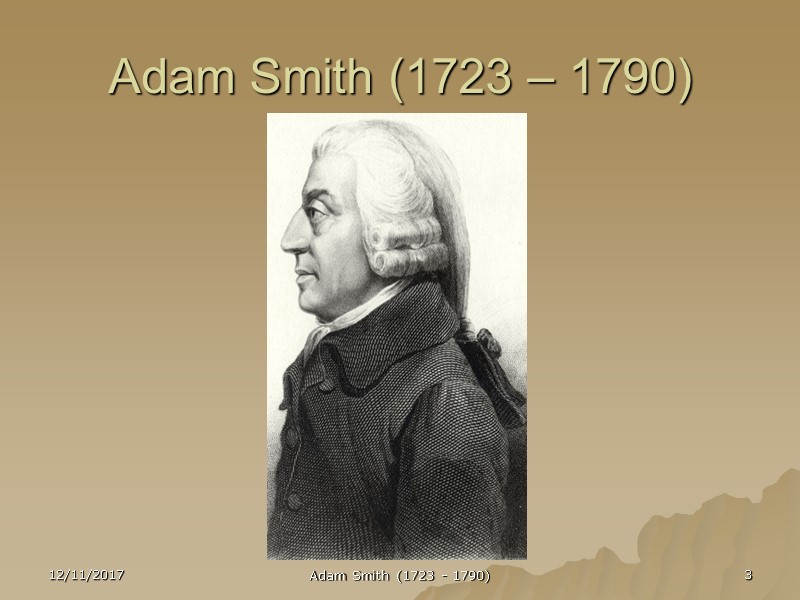 Adam Smith (1723 – 1790) 12/11/2017 3 Adam Smith (1723 - 1790)
Adam Smith (1723 – 1790) 12/11/2017 3 Adam Smith (1723 - 1790)
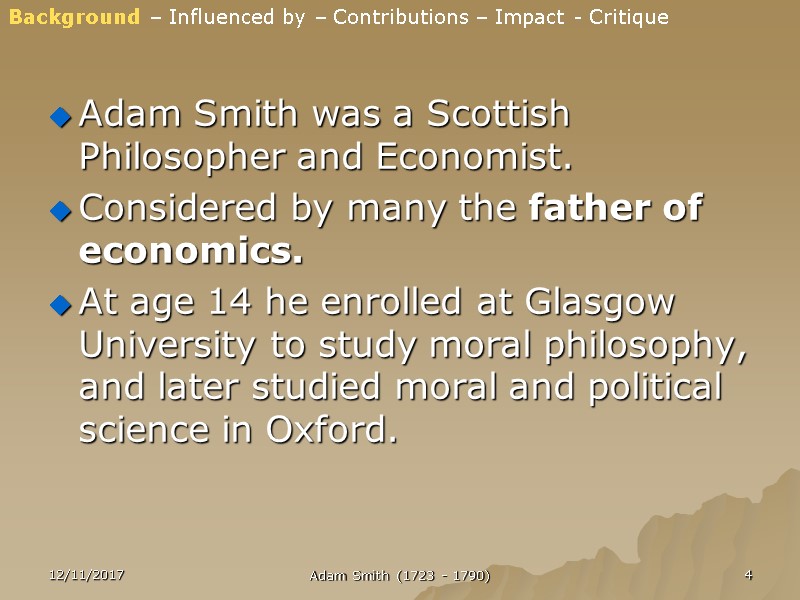 Adam Smith was a Scottish Philosopher and Economist. Considered by many the father of economics. At age 14 he enrolled at Glasgow University to study moral philosophy, and later studied moral and political science in Oxford. Background – Influenced by – Contributions – Impact - Critique 12/11/2017 4 Adam Smith (1723 - 1790)
Adam Smith was a Scottish Philosopher and Economist. Considered by many the father of economics. At age 14 he enrolled at Glasgow University to study moral philosophy, and later studied moral and political science in Oxford. Background – Influenced by – Contributions – Impact - Critique 12/11/2017 4 Adam Smith (1723 - 1790)
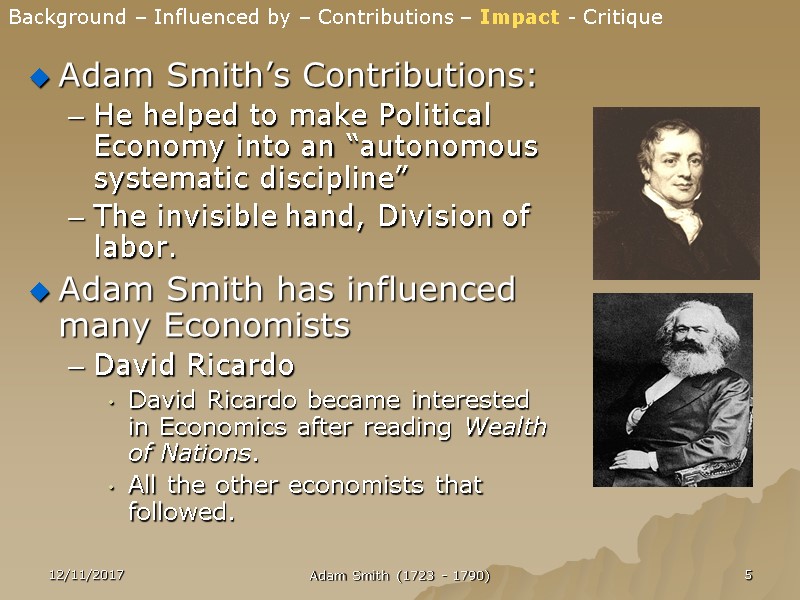 Adam Smith’s Contributions: He helped to make Political Economy into an “autonomous systematic discipline” The invisible hand, Division of labor. Adam Smith has influenced many Economists David Ricardo David Ricardo became interested in Economics after reading Wealth of Nations. All the other economists that followed. 12/11/2017 5 Adam Smith (1723 - 1790) Background – Influenced by – Contributions – Impact - Critique
Adam Smith’s Contributions: He helped to make Political Economy into an “autonomous systematic discipline” The invisible hand, Division of labor. Adam Smith has influenced many Economists David Ricardo David Ricardo became interested in Economics after reading Wealth of Nations. All the other economists that followed. 12/11/2017 5 Adam Smith (1723 - 1790) Background – Influenced by – Contributions – Impact - Critique
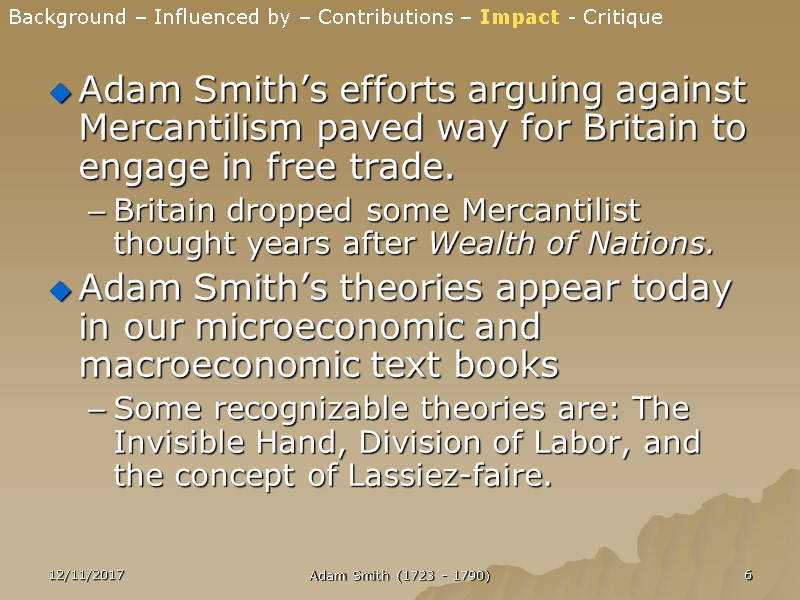 Adam Smith’s efforts arguing against Mercantilism paved way for Britain to engage in free trade. Britain dropped some Mercantilist thought years after Wealth of Nations. Adam Smith’s theories appear today in our microeconomic and macroeconomic text books Some recognizable theories are: The Invisible Hand, Division of Labor, and the concept of Lassiez-faire. 12/11/2017 6 Adam Smith (1723 - 1790) Background – Influenced by – Contributions – Impact - Critique
Adam Smith’s efforts arguing against Mercantilism paved way for Britain to engage in free trade. Britain dropped some Mercantilist thought years after Wealth of Nations. Adam Smith’s theories appear today in our microeconomic and macroeconomic text books Some recognizable theories are: The Invisible Hand, Division of Labor, and the concept of Lassiez-faire. 12/11/2017 6 Adam Smith (1723 - 1790) Background – Influenced by – Contributions – Impact - Critique
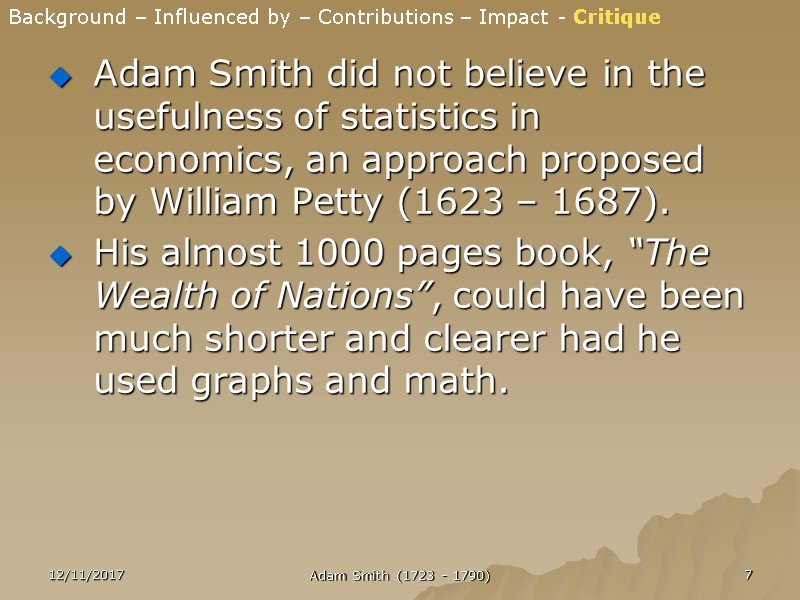 Adam Smith did not believe in the usefulness of statistics in economics, an approach proposed by William Petty (1623 – 1687). His almost 1000 pages book, “The Wealth of Nations”, could have been much shorter and clearer had he used graphs and math. 12/11/2017 Adam Smith (1723 - 1790) 7 Background – Influenced by – Contributions – Impact - Critique
Adam Smith did not believe in the usefulness of statistics in economics, an approach proposed by William Petty (1623 – 1687). His almost 1000 pages book, “The Wealth of Nations”, could have been much shorter and clearer had he used graphs and math. 12/11/2017 Adam Smith (1723 - 1790) 7 Background – Influenced by – Contributions – Impact - Critique















